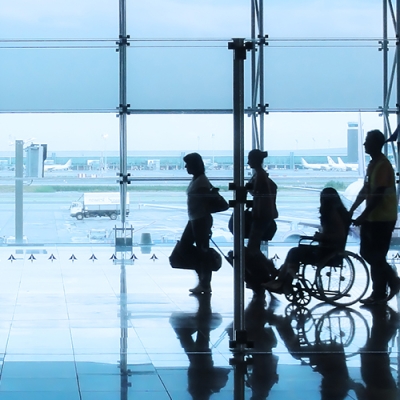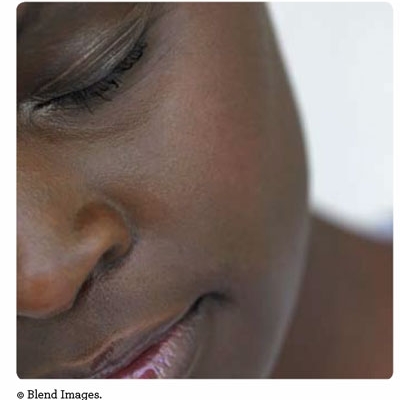Refine results
-
14 December 2012Book page
Chapter 3 - Introduction: Social Justice Report 2009
When I commenced writing this chapter in 2008, Australia did not have a national Indigenous languages policy. However in August 2009, for the first time in Australia’s history, the Commonwealth Government launched a strategy for preserving Indigenous languages: Indigenous Languages - A National Approach 2009 (National Approach). The National Approach sets out the Commonwealth Government&… -
Disability Rights1 September 2018Webpage

Disability Rights: Inquiries and consultations
This page is the main entry point for information about and participation in current public inquiry and consultation processes by the Commission in the disability rights area. -
Children's Rights18 April 2013Speech
Walking the talk: Towards authentic child voice
It’s fantastic to be amongst so many people committed to the wellbeing of Australia’s children. I’m thrilled to have been invited today by Prue Warrilow, Brian Babington and Families Australia and feel honoured to deliver the Berry Street Childhood Institute Families Australia Oration as my first speaking engagement as inaugural National Children’s Commissioner. -
14 December 2012Book page
Chapter 4 - Introduction: Social Justice Report 2009
Homelands still belong to the people, we want to build homes on our land and live there. When we come to the homeland we come back to the peace and quiet. ... It is a much better environment on the homelands, better things for the children.[1] -
14 December 2012Book page
Native Title Report 2008 - Chapter 2
In my Native Title Report 2007, I reported on the changes that were made to the native title system during that year. The changes, which were made through two pieces of legislation which amended the Native Title Act, primarily affected: -
Commission – General22 July 2021Webpage
Privacy
This section explains the type of information that is collected by the Commission, how such information is used, under what circumstances and to whom it may be disclosed, and describes security measures in place on the website. -
14 December 2012Book page
13. Recreation for Children in Immigration Detention
The opportunities for children to engage in play and recreation have a critical impact on a child's experience of detention. However, the detention environment brings with it inherent difficulties in providing adequate opportunity for play and recreation. -
14 December 2012Book page
Chapter 4: Beyond the Apology - an agenda for healing: Social Justice Report 2008
On 13 February 2008 Prime Minister Kevin Rudd, on behalf of the Australian Parliament, made a historic and long overdue national Apology to the Stolen Generations. With eloquence and emotion, Prime Minister Rudd said what so many Australians have wanted to say, and what so many Indigenous peoples have needed to hear: -
15 July 2014Book page
Chapter 1: How far have we come? Looking back on 20 years of the Social Justice Commissioner role
1.1 Introduction This year marks 20 years since the establishment of the Aboriginal and Torres Strait Islander Social Justice Commissioner (Social Justice Commissioner) role under the Australian Human Rights Commission Act 1986 (Cth). When I first started in this position I was asked if any of the previous Commissioners had left any words or notes of advice. I answered them ‘no, but they all… -
14 December 2012Book page
Select Bibliography on Rural and Remote Education in Australia
This bibliography has been prepared by the Rural Education, Research and Development Centre, Townsville, Qld according to guidelines established by the Human Rights and Equal Opportunity Commission to assist in its inquiry into aspects of rural and remote school education provision in Australia. It attempts to include highly relevant, more recent, seminal, theoretical and policy-oriented… -
14 December 2012Book page
HREOC - Annual Report 2001 - 2002: Chapter 1: The Commission
The Commission is a national independent statutory body established under the Human Rights and Equal Opportunity Commission Act 1986. It has a President and five Commissioners. The five positions are currently held by three persons. -
14 December 2012Book page
Native Title Report 2006: Chapter 1: Indigenous Perspectives on Land and Land Use
If a group’s traditional country is not in a mining area they escape the injury to country that mining represents but have little opportunity to really develop industry and commerce that could support their communities.1 -
14 December 2012Book page
Native Title Report 2003 : Chapter 1
Australia is a wealthy nation. In 2003, Australia ranked fourth in the United Nations Human Development Index (1) indicating Australians enjoyed one of the highest qualities of life in the world. Overall, Australia ranks equal fourth with the highest life expectancy at birth (79.0 years) suggesting Australians are among the healthiest people in the world. (2) -
Race Discrimination14 December 2012Project

In our own words - African Australians: A review of human rights and social inclusion issues (2010)
In 2007, the former Race Discrimination Commissioner, Tom Calma, had a vision to develop a human rights initiative based on the experiences of African Australians, to inform future policy and programs. -
14 December 2012Book page
Native Title Report 2001: Chapter Three: Negotiating co-existence through framework agreements
A stable and enduring basis for a dynamic and long term relationship between Indigenous and non-Indigenous people over land is emerging through negotiation and agreement-making. Native title agreements are increasingly seen as an important tool in defining the rights of native title holders over their land. But here, as in other aspects of native title, there is concern that there are currently… -
14 December 2012Book page
National Inquiry into Children in Immigration Detention
ChilOut was established in July 2001 by a group of concerned parents and citizens who felt compelled to advocate and act on behalf of children and their parents living in Australia's immigration detention centres (IDC). -
14 December 2012Book page
Native Title Report 2007: Chapter 1
Native title is now well established in Australian law. The native title system was set up in 1994 under the Native Title Act 1993 (Cth) (the Native Title Act). It is for gaining recognition and protection of native title, and for resolving native title matters. It has been successfully used in many parts of the country. -
14 December 2012Book page
Native Title Report 2007: Chapter 11
While the native title system is able to deliver social and cultural outcomes through determinations of native title, Indigenous land use agreements (ILUAs) are one of the only ways in which native title holders can pursue economic development. -
14 December 2012Book page
Appendix 1: Case studies
Until December 2009, Ali Jasmin lived with his family in Bala Uring, a small village on the island of Flores, Indonesia. His family bought fish from the local fishermen and sold them at the market. Ali had completed seven years of schooling and worked as a fisherman in a little town not far from his home. -
14 December 2012Book page
Chapter 2: Constitutional reform: Creating a nation for all of us - Social Justice Report 2010
A century ago, the Australian people engaged in a debate about creating a nation. They held meetings...They wrote articles and letters in newspapers. Many views were canvassed and voices were heard. The separate colonies, having divided up the land between them, discussed ways of sharing powers in order to achieve a vision of a united Australia. The result was the Australian Constitution,…
